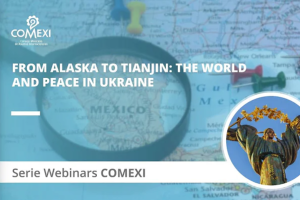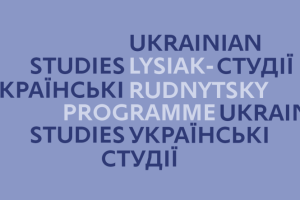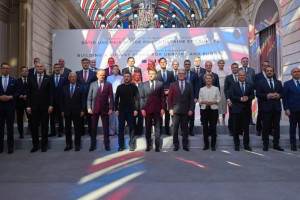Appeal to the members of the German Bundestag, the French National Assembly, the House of Representatives of The Netherlands, the Chamber of Deputies of the Italian Parliament, the National Council of the Austrian Parliament, the Congress of Deputies of Spain, the Assembly of the Portuguese Republic, the Hellenic Parliament, the National Assembly of Hungary
Providing EU candidate status for Ukraine
Kyiv, 20 May 2022 – We – representatives of civil society, scientific and cultural communities in Ukraine and in EU countries – urge the German Bundestag, the French National Assembly, the House of Representatives of The Netherlands, the Chamber of Deputies of the Italian Parliament, the National Council of the Austrian Parliament, the Congress of Deputies of Spain, the Assembly of the Portuguese Republic, the Hellenic Parliament, the National Assembly of Hungary to endorse Ukraine’s application for EU candidate status and support it with the necessary political will and enthusiasm that will lead to its realisation. EU candidate status for Ukraine has the potential to confer immense benefits for Ukraine: firstly, it will provide a powerful incentive for Ukrainians to undertake the necessary steps to achieve integration; secondly, it will provide an institutional framework for post-war reconstruction of the Ukrainian economy. At the same time, the EU will gain a candidate whose credentials have been burnished in the most challenging of crucibles, namely war, and in the face of what where once thought to be insuperable odds. To gain such a candidate would be to rejuvenate the entire EU project. Importantly, such a step now will be the expression of the EU’s confidence that Ukraine will prevail in this war and will significantly boost Ukraine’s resistance capacity.
However, it must be noted that our appeal is not based on wishful thinking. As independent Ukrainian experts, who have been professionally monitoring Ukraine’s implementation of the Association Agreement since 2014, we have witnessed the significant progress Ukraine has made in approximating its national legislation to the EU acquis over the last six years. Ukraine has been a reliable and enthusiastic partner, which has invested extensive institutional and political capital in the implementation of the AA, including the:
- Development of the institutional structure for coordination of the implementation of the euro-integration process. This includes the creation of the Government Office for European and Euro-Atlantic integration of Ukraine and the appointment of Deputy Ministers specifically responsible for European integration in the line ministries.
- Establishment of the community of experts, lawyers and civil servants who have driven the legal approximation in the framework of Association Agreement implementation.
- Achievement of significant results in approximation of Ukrainian legislation to the EU requirements. Ukraine has started and advanced a legal approximation process in virtually all chapters of the Association Agreement. Those chapters resemble those of the accession negotiations process, making Ukraine more advanced than many former candidates at the beginning of the process.
- Application of EU norms across sectors such as Public Procurement, Energy, Transplantology and Market surveillance reform.
We recognise that much more needs to be done: approximation of EU legislation is a challenging task for a post-Soviet country, especially if it is conducted without a clear political target and EU leadership. Therefore, EU candidate status for Ukraine would send a strong political message to Ukrainian society while offering Ukraine access to EU technical assistance and structural funds to implement complex reforms.
It should be clear that Ukrainian society shares European values – after all, Ukrainians are literally putting their life on the line to defend them. Ukraine has stood up to Russia precisely because it values democracy and vehemently rejects tyranny or dictatorship. According to the World Values Survey conducted in Ukraine in 2020, nearly 80% of Ukrainians care about living in a democratic society a figure which has grown from 74,1% in 2011. Some 90% of Ukrainians support their country’s accession to the EU. Twice, Ukrainian society came onto the streets, to protect its rights and freedom – firstly during the Orange Revolution in 2004 and then the Revolution of Dignity in 2013. Now, it stands firm in the face of an attempt by Russia to destroy it as a nation and as a democracy.
History shows that the Union is a peace project – it was established in 1951 precisely to prevent a new war in Europe. This noble ideal – peace promotion – is enshrined in EU treaties. We know there is strong political and public support for Ukraine’s membership of the EU. According to the latest Eurobarometer survey, 66% of EU citizens agree that Ukraine should join the EU. For this reason, we call on the members of the German Bundestag, the French National Assembly, the House of Representatives of The Netherlands, the Chamber of Deputies of the Italian Parliament, the National Council of the Austrian Parliament, the Congress of Deputies of Spain, the Assembly of the Portuguese Republic, the Hellenic Parliament, the National Assembly of Hungary, as representatives of the people, to continue to uphold this ideal by supporting Ukraine application for EU candidate status on June 23-24, 2022, when the European Council is supposed to vote on Ukraine's candidacy.
This is a defining moment not only for Ukraine but also the EU. It is a chance for Ukraine to return to the European family. But it is also an opportunity for the EU to help defend the frontier of the democratic world where Ukrainians, by sacrificing their lives, have proved their worthiness.
Find the complete list of signatories in a PDF file below








